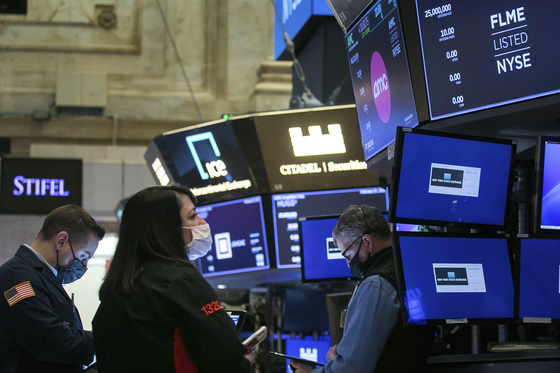Although foreigners sold domestic stocks for three months in a row, bond investment was found to have increased significantly. The size of foreigners’ domestic bond holdings was the highest ever.
According to the Financial Supervisory Service on the 8th, last month foreigners net sold listed stocks in Korea worth 3,242 trillion won. It is’sold’ for three consecutive months since last December. The Financial Supervisory Service analyzed that “the increased sentiment of market unrest caused by the rise in US Treasury yields had an effect.”
On the other hand, bond purchases increased. Last month, a net investment of 8.98 trillion won was invested in domestic listed bonds. It is the largest ever since the Financial Supervisory Service compiled the monthly foreign investment. It is close to eight times that of last January (1,158 trillion won). This is the result of net purchase of 12.84 trillion won, which is much larger than the maturity repayment (3.96 trillion won).
Listed bonds refer to government bonds and currency-stabilized securities traded on the Korean Exchange. Foreigners have been making net investment for two consecutive months since last January.

New York Stock Exchange. AP=Yonhap News
9 trillion net investment… Holdings 161 trillion’the largest ever’
By investor, Asia had the highest net investment with 3.64 trillion won, followed by Europe (2,6180 billion won) and the Middle East (1.45 trillion won). By type of bond, investment was made mainly in government bonds (6.39 trillion won) and mobile bank bonds (2.568 trillion won). Accordingly, foreigners’ bond holdings amounted to 161.5 trillion won as of the end of last month, a record high. This means that 7.7% of all listed bonds are held by foreigners.
It is analyzed that the reason foreigners buy domestic bonds is that economic fundamentals (basic conditions) are good and interest rate attractiveness is relatively high. Lee Hyo-seop, head of the Financial Industry Dept. of the Capital Market Research Institute, explained, “Korean bonds have an attractive interest rate relative to credit risk, so the expected return is good.”
Korea’s national credit rating is Standard & Poor’s (S&P) evaluation criteria AA, the same as the UK and France. Interest rates are relatively high. Korea’s 10-year Treasury bond yield is currently 1.9%, higher than that of advanced countries such as the United States (1.58%), Japan (0.1%), and Germany (-0.31%), as well as major emerging countries such as Australia (1.77%).
Some analyzes show that the demand for foreign exchange gains increased as the value of the won fell. The won price dropped from around 1090 won per dollar at the end of last year to the mid-1120 won range. In order for foreigners to invest in domestic bonds, foreign currency must be exchanged (swapped) for a certain period of time, and in this process, foreigners receive a kind of exchange premium. Director Lee Hyo-seop said, “As the won is expected to be strong in the long term, expectations for a currency premium came into play.”
Foreigners buy bonds, but why are interest rates rising? Usually, when there are many people who buy bonds, bond prices rise and interest rates fall. Regarding this, Yeo-sam Yoon, a researcher at Meritz Securities, said, “As the global bond market is weak, Korea is also linked to that trend.” He added, “There are some areas that domestic investors cannot actively respond to because the market is weak.”
Reporter Hwang Eui-young [email protected]
![]()
